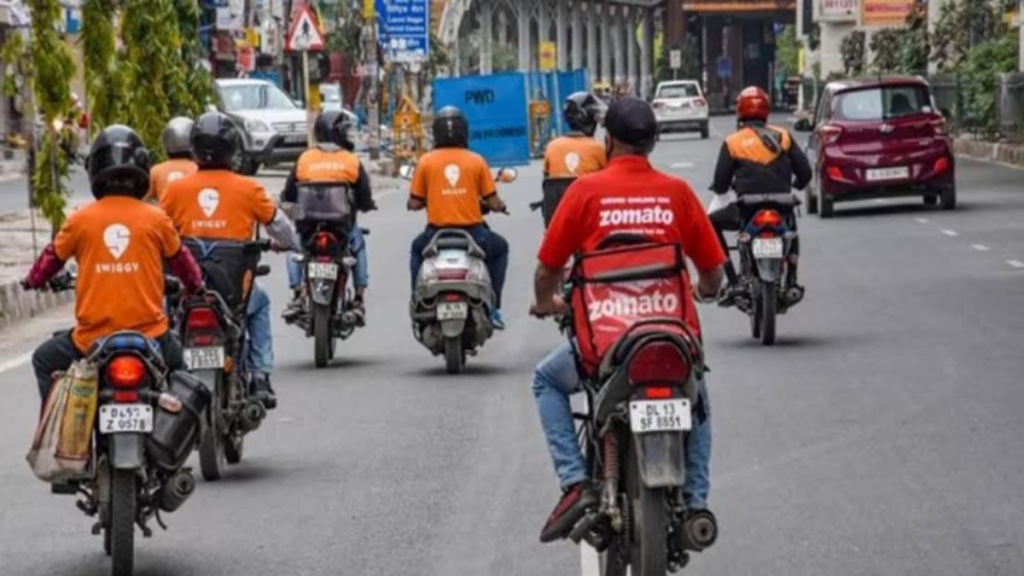The scorching pace of quick commerce is singing the business of Avenue Supermarts. The convenience of speedy deliveries has meant shoppers visit Avenue’s DMart stores less frequently now. The same catchments that were served by DMart stores, known for great discounts, are now also targetted by the Blinkits, Zeptos and Swiggy Instamarts. While the speed with which q-commerce has expanded may not have been anticipated, Avenue needed to have caught on to the changes in the market. Despite the data at its disposal, it has failed to come up with an e-retailing proposition. Revenues from the online business grew at about 21.5% year-on-year in the nine months to December.
Moreover, discounts from q-commerce retailers are matching those from Avenue’s online channel DMartReady. A comparison of grocery baskets in December last year revealed how competitive the q-commerce space had become with Flipkart Minutes’ attractive offers. Not to be outdone Zepto came up with the ‘Super Saver’ which together with Flipkart Minutes, gave customers the best deals for orders bigger than Rs 799. “For the first time, DMart Ready is not the cheapest option,” wrote Vivek Maheshwari at Jefferies.
Losing the ‘lowest prices’ tag must have been hard for one of the country’s most valued retailers. It had acknowledged in September that q-commerce was impacting its business especially in the urban markets and recently said sales in the metros could be impacted by at least 2%. In FY24, DMart Ready, Avenue’s online channel brought in just Rs 2,899 crore or 6% of the retailer’s topline of Rs50,788 crore.
According to Garima Mishra of Kotak Institutional Equities (KIE), while the pricing of DMart stores is still competitive, from a consumer’s standpoint, DMart’s price advantage becomes meaningful only on large bill values, which justify making a trip to the store. Anshul Asawa, who will take over as MD and CEO from February 1, 2026, has his task cut out for him. He must speed up store additions and ensure DMart stores retain the price advantage they are popular for.
But first, he needs to fix Avenue’s e-commerce effort. Its DMartReady pick-up points have been quite unprepared for
the onslaught of offerings from q-commerce players whose tally of stock keeping units (SKUs) has hit 15,000-20,000 from just 2,000 two years ago. It will not be easy to transform what is essentially a service that delivers to pick-up points into a full-fledged home delivery service. Avenue is hoping to reduce the number of pick-up points to 250 in a couple of months from about 340 in March, 2024. But it needs to scale up the home delivery service that it has rolled out in few towns.
Today, the contribution from the home delivery business far exceeds that from pick-up points.
But the q-commerce effort has some way to go. Just how much can be gleaned from Zepto CEO & co-founder Aadit Palicha’s boast his company could overtake Avenue’s sales in two years, if it continued to grow two to three times annually. Zepto’s revenues doubled to Rs 4,454 crore in FY24 while those for Blinkit trebled to Rs 2,301 crore.
As KIE’s Mishra observes, q-commerce companies have upped the ante. “While it remains to be seen whether this pricing sustains, it can still negatively impact demand for DMart’s products in the near term,” Mishra believes. She points out that as q-commerce companies build scale–Blinkit’s gross merchandise value was already 42% of DMart’s revenues in Q2FY25– they can also get sourcing advantages similar to DMart, allowing them to inherently offer similar pricing.
Nikhil Sethi, Partner, FMCG and Retail at KPMG India, points out that the category expansion at q-commerce retailers has been extensive. “Also, they have been able to target the right catchments by building dark stores near these well-to-do neighbourhoods. On top of the convenience, they are able to sell at prices that are at par with other retailers,” Sethi says.
Indeed, while estimates for gross order values via q-commerce may be somewhat exaggerated, they are now pegged at $50 billion by FY30 penciling in purchases by 60 million customers ordering eight times a month. With Flipkart and Amazon moving into the space, experts see value migrating from e-commerce to q-commerce in the near term. This would strengthen the bottom lines of q-commerce companies and help them fund some of the discounts that they’re offering customers.
Typically stores like DMart let the manufacturers of FMCG and other products do the discounting promising the brands big volumes in return. But whether this will work for q-commerce remains to be seen. With a 22% discount to the printed price —including the extra 10% discount up to 150 on orders of over Rs 999–Flipkart Minutes is outdoing the “value” offered by DMart Ready, says Jefferies’ Maheshwari.
Although its cost of operations is low, discounts will eat into Avenue’s margins; it already offers on average a 21% discount on groceries and FMCG products. The management has highlighted the increased intensity in discounting in the FMCG category, which has impacted the higher throughput stores in metro cities. A strong quick-delivery channel is a must to grow throughput. Should Amazon India’s Amazon Tez turn out to be as competitive in its approach, modern trade could be in even more trouble.
KPMG’s Sethi observes that given the expected growth in q-commerce all kinds of retailers will need to offer the service. “Getting delivery in quick time is becoming hygiene,” Sethi believes. Avenue must make haste.

